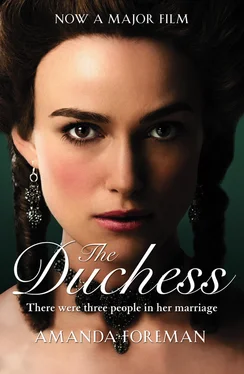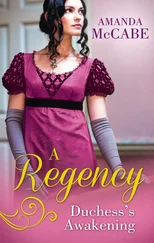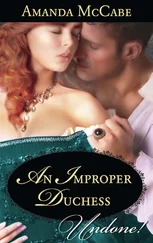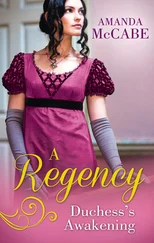Georgiana was seven when the family moved their London residence to the newly built Spencer House in St James’s, overlooking Green Park. The length of time and sums involved in the building – almost £50,000 over seven years – reflected Lord Spencer’s determination to create a house worthy of his growing collection of classical antiquities. The travel writer and economist Arthur Young was among the first people to view the house when Lord Spencer opened it to the public. ‘I know not in England a more beautiful piece of architecture,’ he wrote, ‘superior to any house I have seen … The hangings, carpets, glasses, sofas, chairs, tables, slabs, everything, are not only astonishingly beautiful, but contain a vast variety.’ 6 Everything, from the elaborate classical façade to the lavishly decorated interior, so much admired by Arthur Young, reflected Lord Spencer’s taste. He was a noted connoisseur and passionate collector of rare books and Italian art. Each time he went abroad he returned with a cargo of paintings and statues for the house. His favourite room, the Painted Room, as it has always been called, was the first complete neo-classical interior in Europe.
The Spencers entertained constantly and were generous patrons. Spencer House was often used for plays and concerts and Georgiana grew up in an extraordinarily sophisticated milieu of writers, politicians and artists. After dinner the guests would sometimes be entertained by a soliloquy delivered by the actor David Garrick or a reading by the writer Laurence Sterne, who dedicated a section of Tristram Shandy to the Spencers. The house had been built not to attract artists, however, but to consolidate the political prestige and influence of the family. The urban palaces of the nobility encircled Westminster like satellite courts. They were deliberately designed to combine informal politics with a formal social life. A ball might fill the vast public rooms one night, a secret political meeting the next. Many a career began with a witty remark made in a drawing room; many a government policy emerged out of discussions over dinner. Jobs were discreetly sought, positions gained, and promises of support obtained in return. This was the age of the Whig oligarchy, when a handful of great landowning families sat in the cabinet, and owned or had a controlling interest in more than half the country’s electoral boroughs. Land conferred wealth, wealth conferred power, and power, in eighteenth-century terms, meant access to patronage, from lucrative government sinecures down to the local parish office worth £20 per annum.
Ironically, there was one condition attached to Lord Spencer’s inheritance: although he could sit in parliament he could not embark on a political career. * He retained great influence because he could use his wealth to support the government, but his political ambitions were thwarted. As a result he had no challenges to draw him out, and little experience of applying himself. He led a life dedicated to pleasure and, in time, the surfeit of ease took its toll. Lord Spencer became diffident and withdrawn. The indefatigable diarist Lady Mary Coke, a distant relation, once heard him speak in parliament and thought ‘as much as could be heard was very pretty, but he was extremely frightened and spoke very low’. 7 The Duke of Newcastle awarded him an earldom in 1765 in recognition of his consistent loyalty. But Lord Spencer’s elevation to the peerage failed to prevent him from becoming more self-absorbed with each passing year. His friend Viscount Palmerston reflected sadly: ‘He seems to be a man whose value few people know. The bright side of his character appears in private and the dark side in public … it is only those who live in intimacy with him who know that he has an understanding and a heart that might do credit to any man.’ 8
Lady Spencer knew her husband could be generous and sensitive. Margaret Georgiana Poyntz, known as Georgiana, met John Spencer in 1754 when she was seventeen, and immediately fell in love with him. ‘I will own it,’ she confided to a friend, ‘and never deny it that I do love Spencer above all men upon Earth.’ 9 He was a handsome man then, with deep-set eyes and thin lips which curled in a cupid’s bow. His daughter inherited from him her unusual height and russet-coloured hair. When Lady Spencer first knew him he loved to parade in the flamboyant fashions of the French aristocracy. At one masquerade he made a striking figure in a blue and gold suit with white leather shoes topped with blue and gold roses. 10
Georgiana’s mother had delicate cheekbones, auburn hair and deep brown eyes which looked almost black against her pale complexion. The fashion for arranging the hair away from the face suited her perfectly. It helped to disguise the fact that her eyes bulged slightly, a feature which she passed on to Georgiana. She was intelligent, exceptionally well read and, unusually for women of her day, she could read and write Greek as well as French and Italian. A portrait painted by Pompeo Batoni in 1764 shows her surrounded by her interests: in one hand she holds a sheaf of music – she was a keen amateur composer – near the other lies a guitar; there are books on the table and in the background the ruins of ancient Rome, referring to her love of all things classical. ‘She has so decided a character,’ remarked Lord Bristol, ‘that nothing can warp it.’ 11
Her father, Stephen Poyntz, had died when she was thirteen, leaving the family in comfortable but not rich circumstances. He had risen from humble origins – his father was an upholsterer – by making the best of an engaging manner and a brilliant mind. He began his career as a tutor to the children of Viscount Townshend and ended it a Privy Councillor to King George II. Accordingly, he brought up his children to be little courtiers like himself: charming, discreet and socially adept in all situations. Vice was tolerated so long as it was hidden. ‘I have known the Poyntzes in the nursery,’ Lord Lansdowne remarked contemptuously, ‘the Bible on the table, the cards in the drawer.’
‘Never was such a lover,’ remarked the prolific diarist and chronicler of her times Mrs Delany, who watched young John Spencer ardently court Miss Poyntz during the spring and summer of 1754. The following year, in late spring, the two families, the Poyntzes and the Spencers, made a week-long excursion to Wimbledon Park. There was no doubt in anyone’s mind about the outcome and yet Spencer was in an agony of anticipation throughout the visit. At the last moment, with the carriages waiting to leave, he drew her aside and blushingly produced a diamond and ruby ring. Inside the gold band, in tiny letters, were the words: ‘MON COEUR EST TOUT À TOI. GARDE LE BI EN POUR MOI.’ *
The first years of their married life were happy. The Duke of Queensberry, known as ‘Old Q’, declared that the Spencers were ‘really the happiest people I ever saw in the marriage system’. They delighted in each other’s company and were affectionate in public as well as in private. In middle age, Lady Spencer proudly told David Garrick, ‘I verily believe that we have neither of us for one instant repented our lot from that time to this.’ 12 They had ‘modern’ attitudes both in their taste and in their attitude to social mores. Their daughter Harriet recorded an occasion when Lord Spencer took her to see some mummified corpses in a church crypt because ‘it is foolish and superstitious to be afraid of seeing dead bodies’. 13 Another time he ‘bid us observe how much persecution encreased [the] zeal for the religion [of the sect] so oppressed, which he said was a lesson against oppression, and for toleration’. 14
The Spencers were demonstrative and affectionate parents. ‘I think I have experienced a thousand times,’ Lady Spencer mused, ‘that commendation does much more good than reproof.’ 15 She preferred to obtain obedience through indirect methods of persuasion, as this letter to eleven-year-old Georgiana shows: ‘I would have neither of you go to the Ball on Tuesday, tho’ I think I need not have mentioned this, as I flatter myself you would both chose rather to go with me, than when I am not there …’ 16 It was a sentiment typical of an age influenced by the ideas of John Locke and Jean Jacques Rousseau, whose books had helped to popularize the cult of ‘sensibility’. In some cases the new, softer attitudes ran to ridiculous excesses. James Boswell, who was himself a tolerant father, complained that his dinner party was ruined when the Countess of Rothes insisted on bringing her two small children, who ‘played and prattled and suffered nobody to be heard but themselves’. 17
Читать дальше












